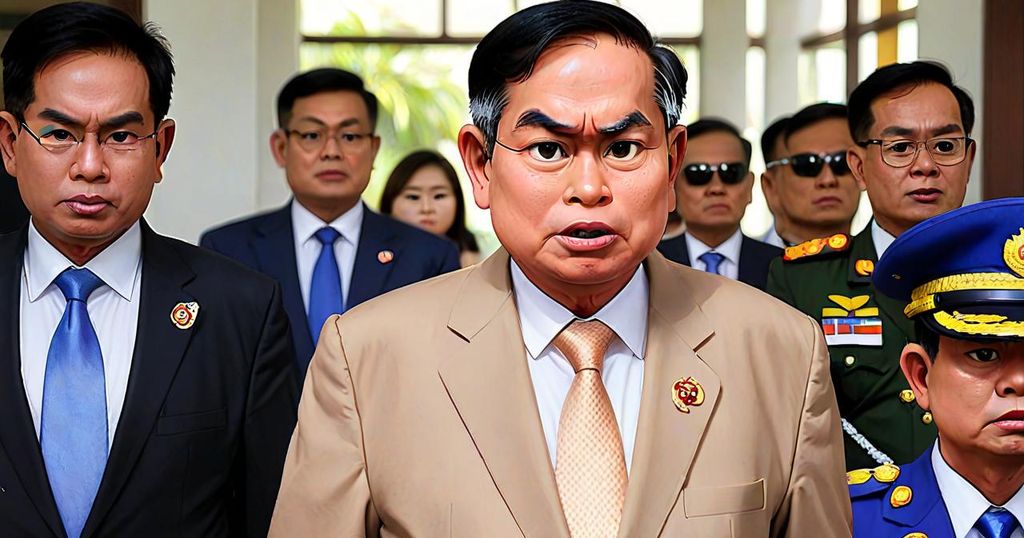Former Thai Prime Minister Thaksin Shinawatra has once again found himself entangled in legal issues. The 74-year-old political figure has been formally charged with royal defamation, also known as lese majeste, by the Criminal Court in Bangkok. This is just one of the many legal battles that have caused upheaval in Thai politics. Thaksin voluntarily reported himself to prosecutors and was subsequently indicted, as confirmed by a spokesperson for the Office of the Attorney General, Prayuth Bejraguna.
Following the indictment, the Criminal Court granted Thaksin bail with a bond amounting to 500,000 baht ($13,000), under the condition that he remains in Thailand without court permission. The court’s decision to grant bail cited several factors, including Thaksin’s age, his permanent address in Thailand, and the lack of objection from the prosecution. However, it was noted that his passport was confiscated. The law on defaming the monarchy carries a penalty of three to 15 years in prison, making it one of the most stringent laws of its kind globally and has been increasingly utilized in Thailand to suppress government critics. This is not the first time Thaksin has faced such charges. In 2016, he was charged with lese majeste for comments made a year earlier and subsequently left the country to evade punishment.
Thaksin’s return to Thailand last year was followed by a period of detention for previous corruption and abuse of power convictions, for which he was released on parole in February. His involvement with the Pheu Thai party, renowned as his political vehicle, led to the formation of the current government through a coalition with its long-standing conservative rivals. Some analysts speculate that the lenient punishment he received was part of an agreement to keep the progressive Move Forward party out of power. Despite maintaining a prominent public presence, Thaksin’s legal troubles are viewed as a warning from his opponents to rein in his political activities.
Apart from Thaksin’s case, there are a plethora of legal entanglements that have plagued Thai politics, including the potential dissolution of the Move Forward party and an investigation into Prime Minister Srettha Thavisin’s appointment of a Cabinet member with a previous bribery conviction. The country’s courts, particularly the Constitutional Court, are considered bastions of the royalist establishment and have been used to thwart political adversaries. Both Move Forward’s and Srettha’s cases are currently undergoing hearings, underscoring the challenges faced by the Pheu Thai party in forging alliances with former foes. The current situation underscores the power asymmetry between elected and unelected forces in Thailand’s democracy.
The ongoing legal procedures have further highlighted the intricacies and power struggles within Thai politics, especially between rival political factions and the influence of the judicial system. The legal woes of former Prime Minister Thaksin Shinawatra serve as a reminder of the complex and dynamic nature of politics in Thailand, raising important questions about the accountability of leadership and the balance of power within the country’s democratic framework.

Leave a Reply